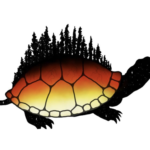Anishinabek Nation Citizenship Commissioner Jeanette Corbiere Lavell to receive Order of Canada
ANISHINABEK NATION HEAD OFFICE (Nipissing First Nation) January 2, 2018 – Anishinabek Nation Grand Council Chief Patrick Madahbee says that Jeanette Corbiere Lavell (Keewednanung), who is the Anishinabek Nation’s Citizenship Commissioner, is most deserving to become a member of the Order of Canada.
“I am so pleased that such a deserving individual who has spent a lifetime fighting for women’s rights and the many issues facing our people, is being honoured,” says Grand Council Chief Madahbee. “Jeanette has been a real champion of the citizens of our First Nations.”
Ms. Corbiere Lavell is a central figure in the pursuit of fairness and recognition for First Nations women and children, especially those who have lost their Indian status due to provisions of the Indian Act. Aside from lack of access to social and treaty benefits that are attached to Indian status, the loss of status can also carry a stigma in First Nation communities.
In April of 1970, the citizen of Wiikwemikoong Territory married David Lavell, which resulted in the loss of her Indian Status and citizenship rights. Corbiere Lavell began her struggle to ensure that the rights of Indian women were equal to the rights of Indian men under the Indian Act. In 1973, the Supreme Court of Canada heard Ms. Corbiere Lavell’s case, now known as the Lavell case, but it was lost by a single vote from the bench.
When the Indian Act was revised in 1985, Bill C-‐31 created new criteria for Indian Status. Section 6 (2) states that only children of two parents with Indian status can pass Indian status on to their children. The rule, sometimes called the ‘two-‐generation cut-‐off’, could mean the extinction of so-‐called “status Indians” within six generations.
More recently, two major court cases have further challenged gender-‐based status provisions. In the 2009 McIvor v. Canada case, the British Columbia Court of Appeals ruled that the Indian Act discriminated against the descendants of Indigenous women who married non-Indigenous men, prompting changes to the law. In the 2015 Descheneaux case, the Québec Superior Court found that subtle forms of sexual discrimination persisted under the Indian Act and ordered the government to reform the law comprehensively.
Corbiere Lavell has been the Anishinabek Nation Citizenship Commissioner since 2008. The Anishinabek Nation has developed its own Citizenship Law which adopts the one-parent rule. Anishinabek First Nation citizens have stated over the years that, “We have the right to determine our own people” and the government should not have the legislative authority to dictate who is “Indian” and who is not.
There are 20 other Indigenous Canadians receiving the Order including poet and author Lee Maracle, the first Indigenous NHL player Fred Sasakamoose, and Robert Joseph, founder of Reconciliation Canada.
The Anishinabek Nation established the Union of Ontario Indians as its secretariat in 1949. The UOI is a political advocate for 40 member communities across Ontario, representing approximately 65,000 people. The Union of Ontario Indians is the oldest political organization in Ontario and can trace its roots back to the Confederacy of Three Fires, which existed long before European contact.
-30-
For more information contact:
Marci Becking, Communications Officer Phone : 705-‐494-‐0735
Email : marci.becking@anishinabek.ca


